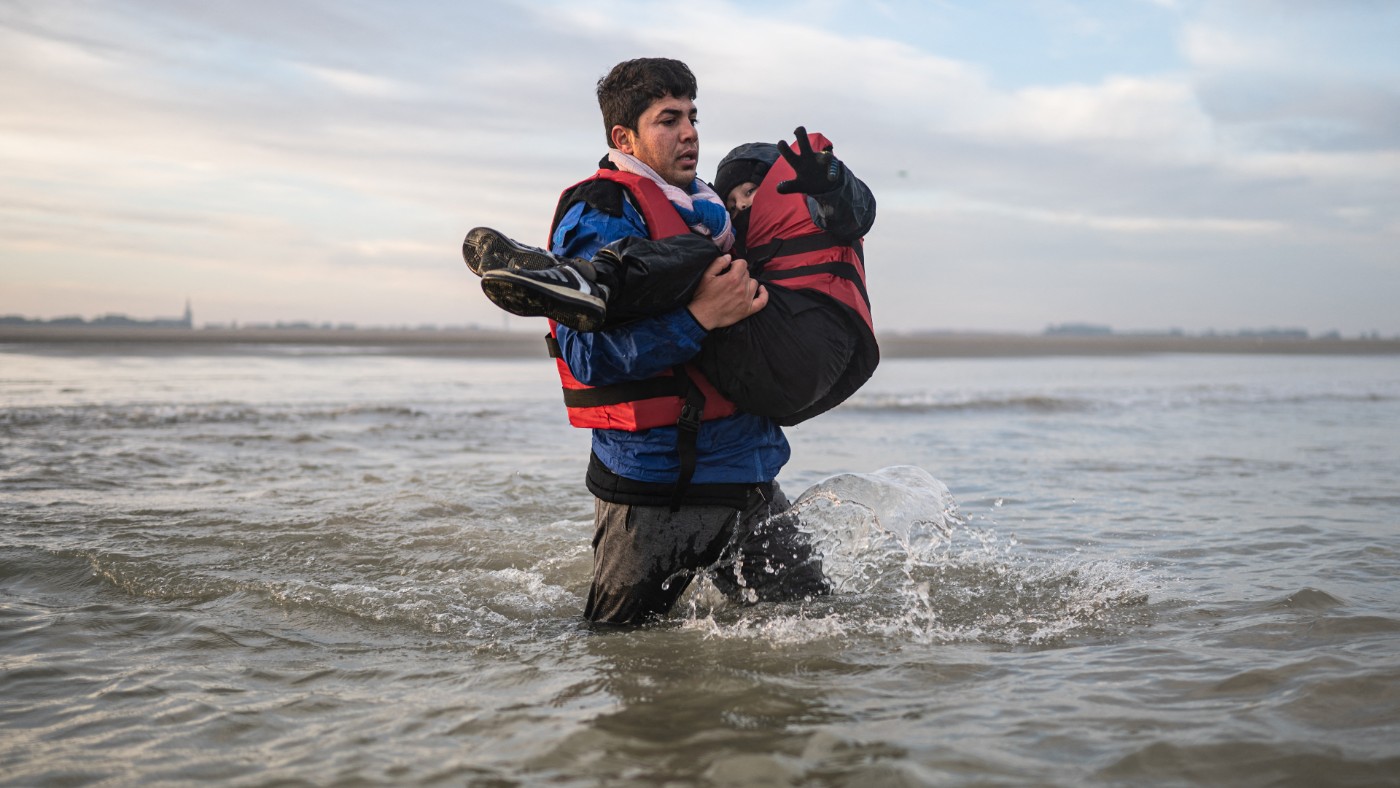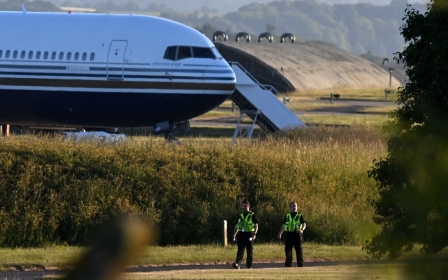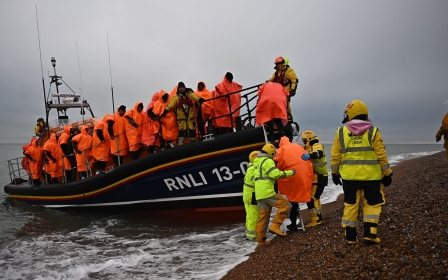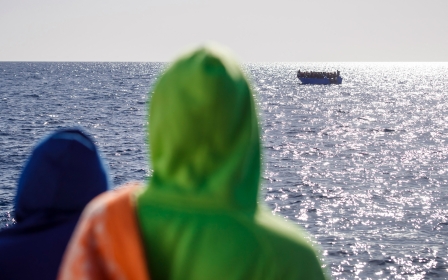Rwanda plan: UK's 'obscene' scheme for asylum seekers condemned after court finds it legal
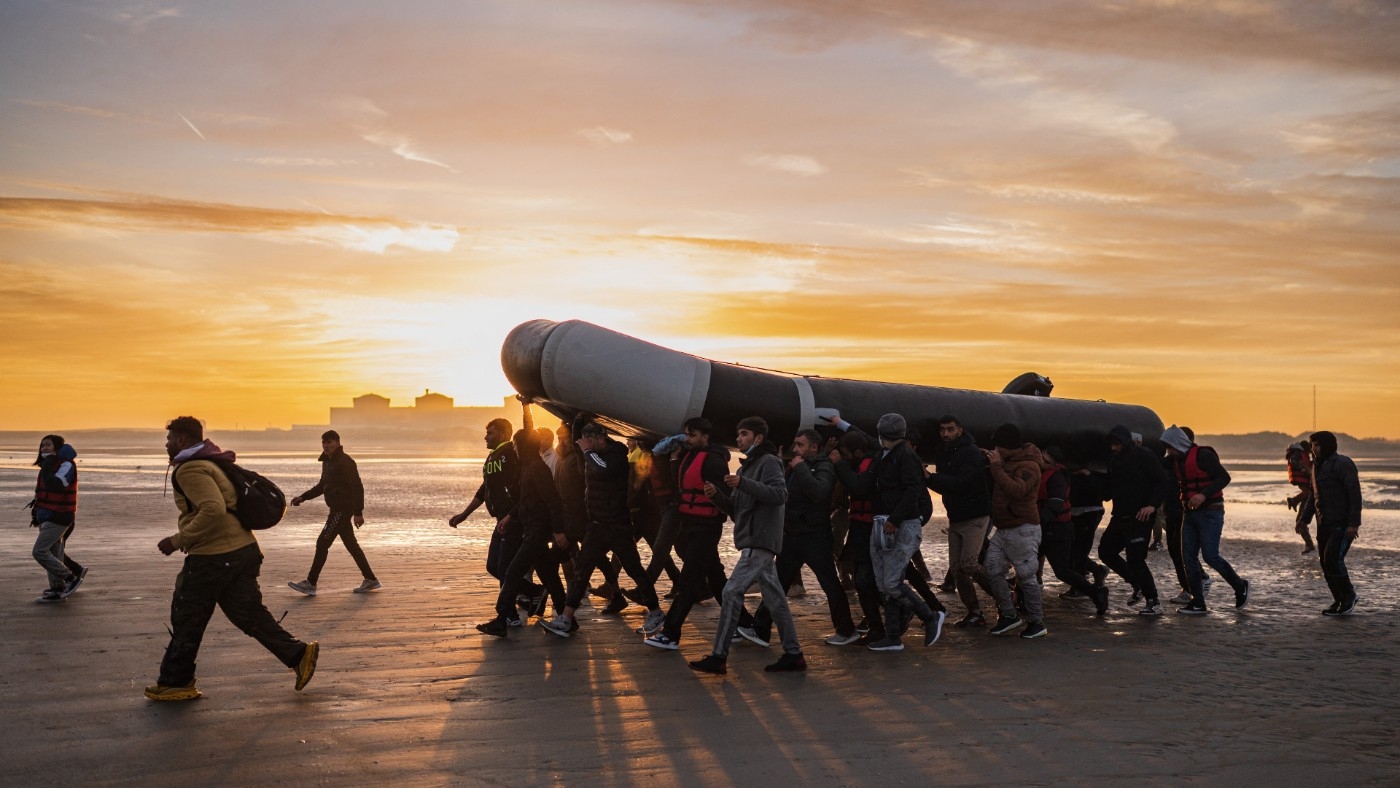
International human rights organisations, local campaigners, asylum seekers and the opposition Labour party have spoken out against the UK government's "obscene" and "damaging" plan to send asylum seekers to Rwanda, after a British high court ruled on Monday that it was legal.
Judges dismissed an application from asylum seekers, aid organisations and a border officials' union to stop Rishi Sunak's Conservative government from acting on a deportation agreement with the central African government.
The agreement, struck in April, is meant to pave the way for Britain to send some of those who arrive in the UK on boats or as stowaways to Rwanda, where their asylum claims would be processed. Those granted asylum would then stay in Rwanda.
'I firmly believe that the government does not care about whether anyone is actually sent to Rwanda or not'
- Bridget Chapman, campaigner
Britain has already paid Rwanda £140m ($170m) as part of the deal, but no one has been sent there. In June, a European human rights court ruling forced the UK to cancel its first scheduled deportation flight to Rwanda.
While both the British and Rwandan governments welcomed the decision, one of the high court judges said that the UK's home secretary had "not properly considered the circumstances" of the eight people they tried to deport in June.
New MEE newsletter: Jerusalem Dispatch
Sign up to get the latest insights and analysis on Israel-Palestine, alongside Turkey Unpacked and other MEE newsletters
Migration by boat into the United Kingdom has been back in the news for much of this year, with more than 44,000 people taking the perilous journey to British shores this year and four people drowning in freezing conditions in the English Channel last week.
Asylum seekers arriving in Britain by boat are usually fleeing a combination of conflict, economic strife, political repression and climate disaster. Many speak English, have family in the UK or have some other kind of connection to the country.
One Kurdish refugee from Iran, currently housed at Napier barracks in Kent where he is waiting to have his asylum claim processed, told Middle East Eye: "If I wanted to go to Rwanda, I would go to Rwanda. I know which way the road to Rwanda is."
"I firmly believe that the government does not care about whether anyone is actually sent to Rwanda or not," Bridget Chapman, a local campaigner on the Kent coast, where the vast majority of boats arrive, told MEE.
"What they care about is taking part in an obscene theatre of cruelty in which they waste millions of pounds of taxpayers' money in a toxic effort to appear as tough as possible towards those we should be offering kindness and protection to."
Chapman said that the British government was trying to undermine international law and that "this period of history will be looked back on with shame, dismay and horror".
UK-Rwanda ties
But the British government is determined to show that it is taking a tough position on migration into the country and has turned to its ally Rwanda for help. Paul Kagame, Rwanda's president since 2000, has been a friend of successive British prime ministers from Tony Blair to Boris Johnson, while facing accusations of authoritarianism.
Commenting on the court's decision, Suella Braverman, the UK's home secretary, talked up London's deal with Kigali: "Our ground-breaking migration partnership with Rwanda will provide individuals relocated with support to build new lives there, while disrupting the business model of people smuggling gangs putting lives at risk through dangerous and illegal small boat crossings," she said.
Braverman has previously called Channel crossings an "invasion of our southern coast" and has invoked British sovereignty in the wake of Brexit as a reason to pursue the deal with Rwanda.
"I would love to be having a front page of The Telegraph with a plane taking off to Rwanda. That's my dream. That's my obsession," she said in October.
Speaking to MEE following the court ruling, Yolande Makolo, Rwandan government spokesperson, echoed Braverman: "We welcome this decision and stand ready to offer asylum seekers and migrants safety and the opportunity to build a new life in Rwanda. This is a positive step in our quest to contribute to innovative, long-term solutions to the global migration crisis."
Makolo told MEE that because of Rwanda's recent history - hundreds of thousands of people died in the country's devastating 1994 genocide - the central African country was "committed to protecting vulnerable people around the world".
"We already provide refuge for over 130,000 refugees from multiple countries," Makolo said.
The spokesperson told MEE that Rwanda is currently in discussions with the Danish government over a deal similar to the one with the UK, but the details have not been finalised.
At the same time, Rwanda has been expanding its military presence in central and southern Africa, with the United Nations reporting that it has been backing the M23 rebel group in the Democratic Republic of Congo.
'Despite this ruling, the Rwanda scheme should be abandoned in its entirety'
- Steve Valdez-Symonds, Amnesty International
"Unlike the US administration, the UK has said nothing about UN reports of Rwanda's backing of M23 in Congo," Patrick Smith, editor of Africa Confidential, told MEE. "To many in the region it looks as if London is in a bizarre competition with Paris to be Kigali's best friend."
"Transporting people thousands of miles away to Rwanda - a country with its own asylum and human rights challenges - is expensive, unjust and deeply cruel," said Steve Valdez-Symonds, the refugee and migrant rights director for Amnesty International UK.
Valdez-Symonds called the high court's decision "bitterly disappointing", and said the deal as a whole "seriously undermines international refugee law and rides roughshod over the rights of people seeking asylum in the UK".
"Despite this ruling, the Rwanda scheme should be abandoned in its entirety," Valdez-Symonds said. "It's a cynical distraction from the pressing need to radically reform the chronically failing asylum procedures, which are slow, increasingly chaotic and leave thousands of people stranded in limbo for years."
'Unworkable, unethical and extortionately expensive'
Commenting on the high court's judgement on the Rwanda deportation scheme, Labour shadow home secretary Yvette Cooper said: "The Rwanda scheme is a damaging distraction from the urgent action the government should be taking to go after the criminal gangs and sort out the asylum system. It is unworkable, unethical, and extortionately expensive.
"Ministers have already written a £140m cheque to Rwanda without the policy even starting, with millions more promised even though Home Office officials say there's no evidence it'll provide a deterrent and it risks making trafficking worse.
"The Rwandan government has said it can only process 200 people a year - or 0.5 percent of Channel crossings this year. It's no surprise that the Home Secretary herself has described the scheme as a failure."
Middle East Eye delivers independent and unrivalled coverage and analysis of the Middle East, North Africa and beyond. To learn more about republishing this content and the associated fees, please fill out this form. More about MEE can be found here.


